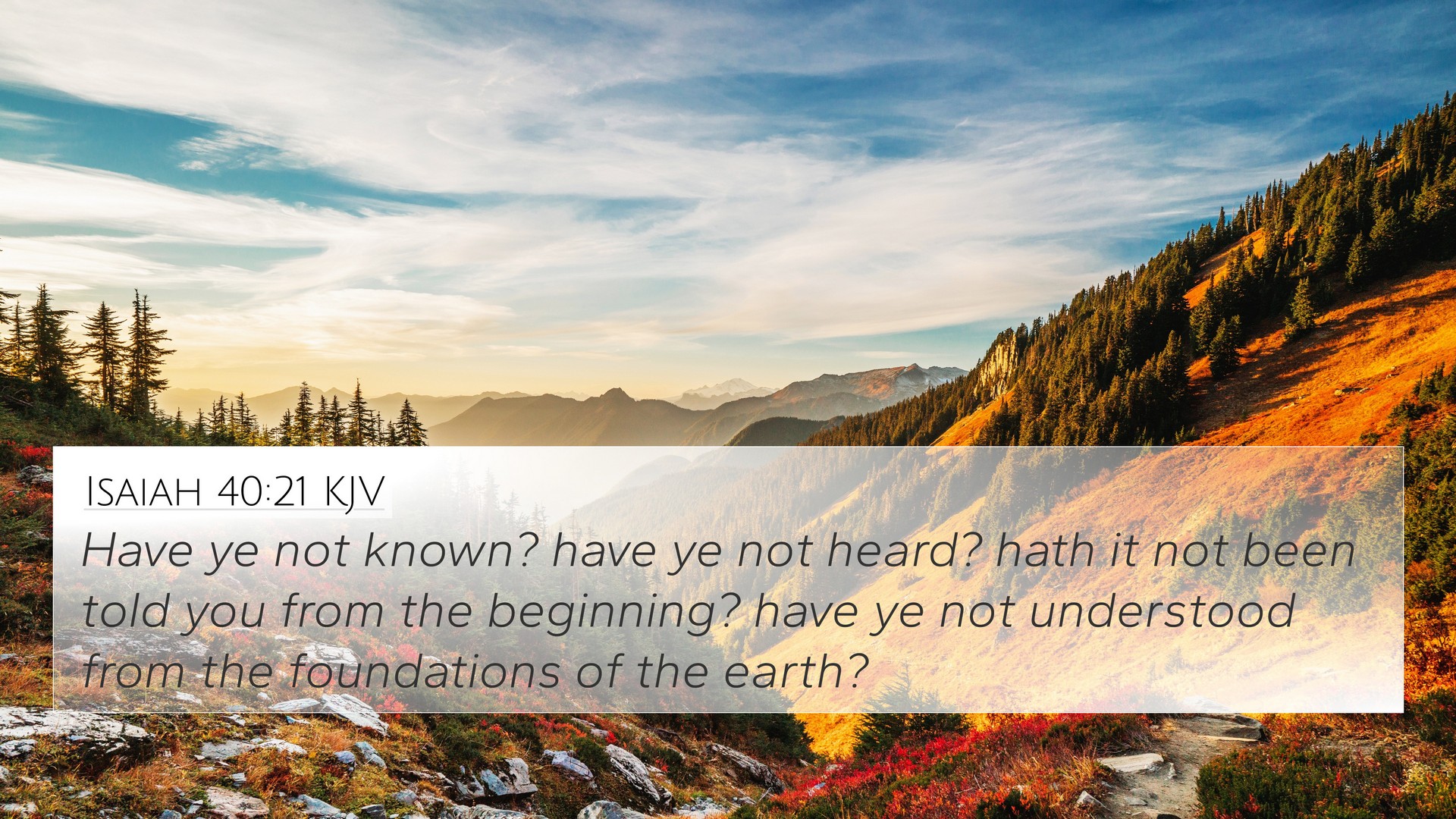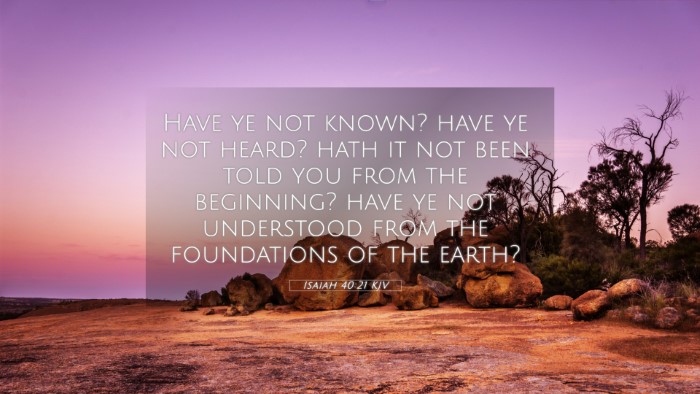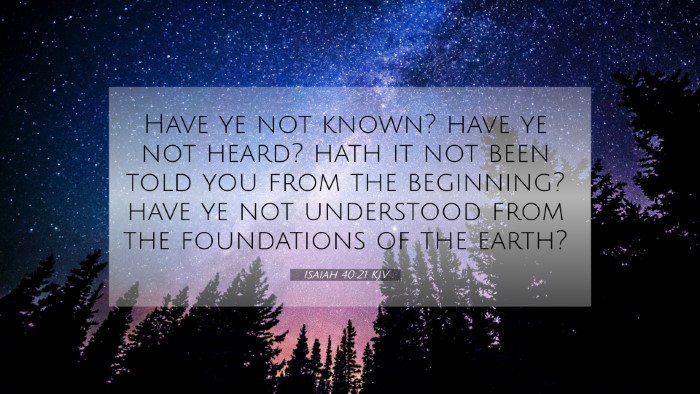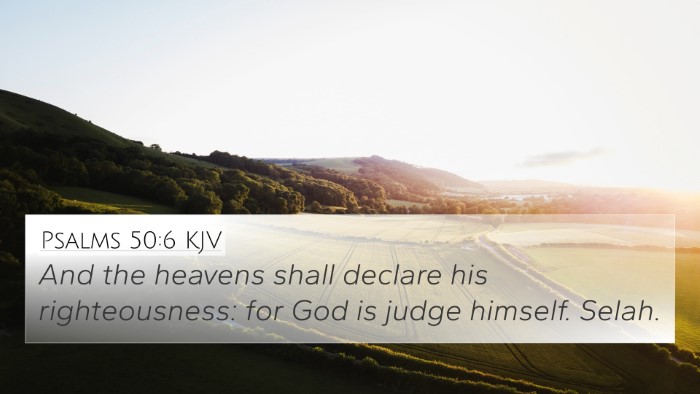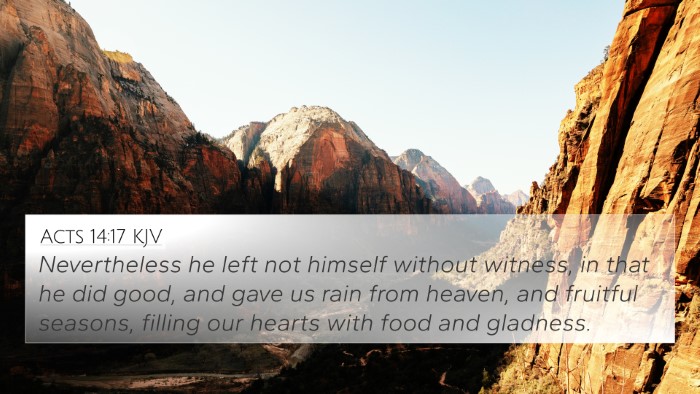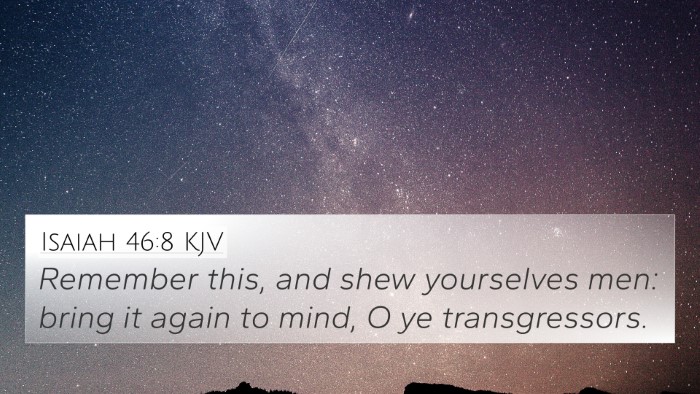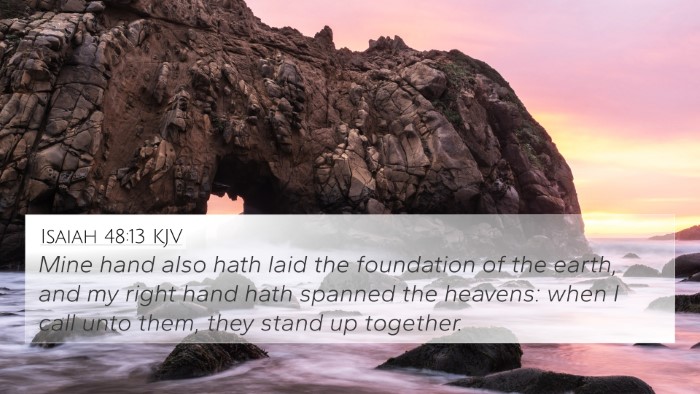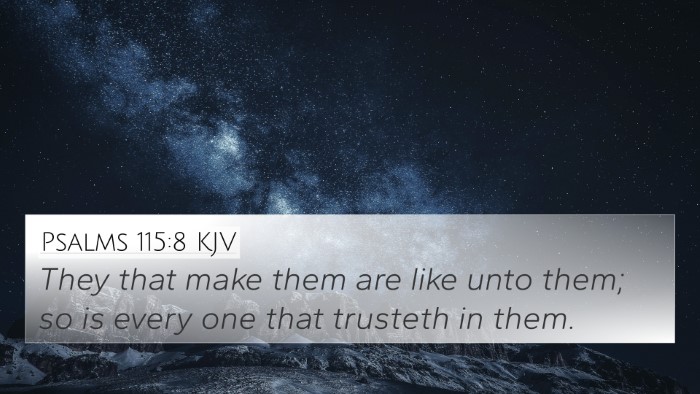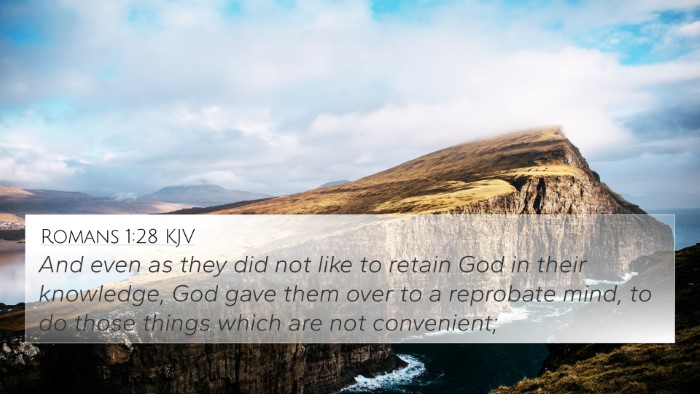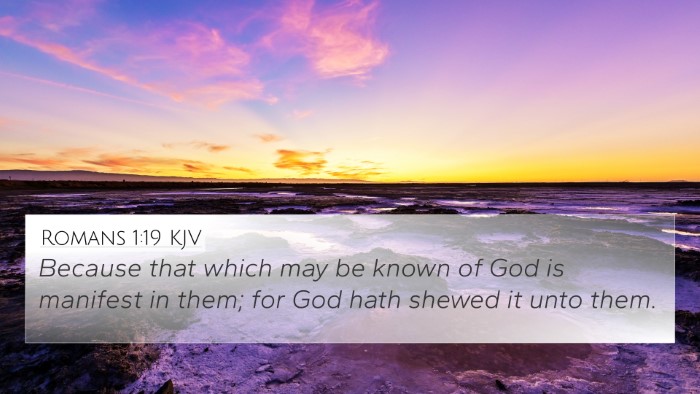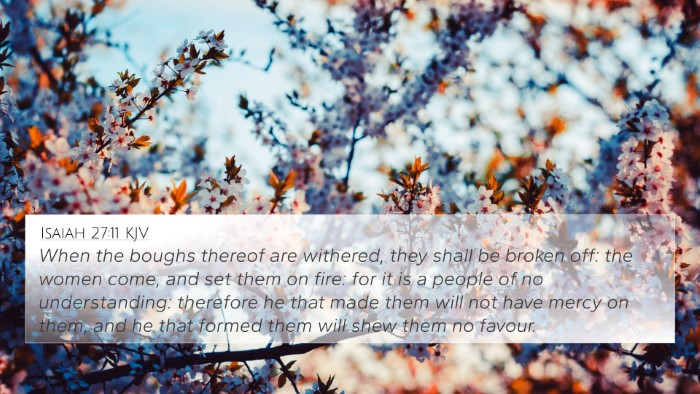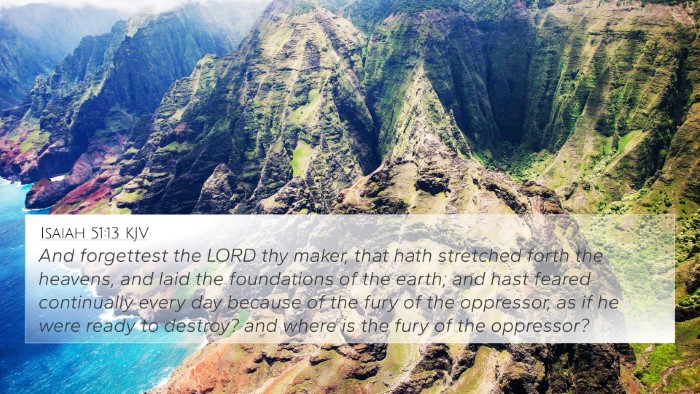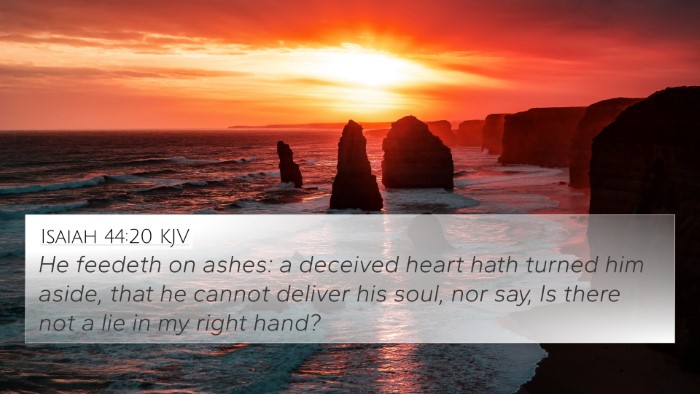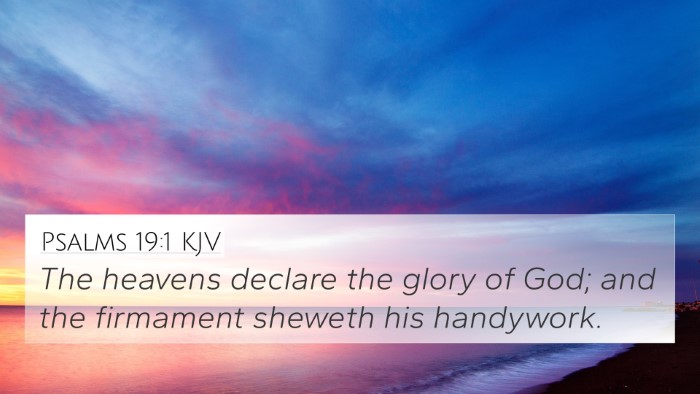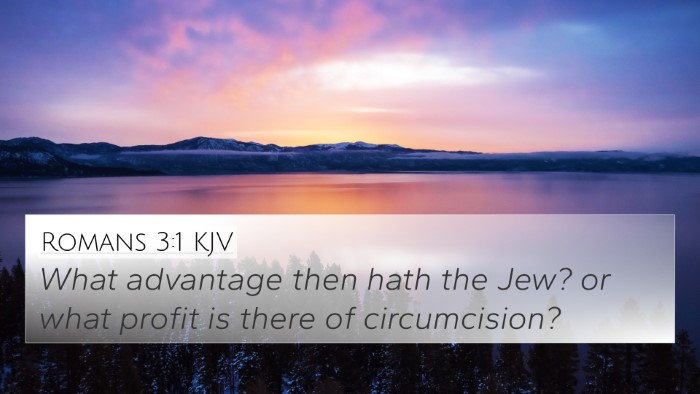Understanding Isaiah 40:21
Isaiah 40:21 states: "Have you not known? Have you not heard? Has it not been told you from the beginning? Have you not understood from the foundations of the earth?" This verse serves as a profound reminder of God's sovereignty and the importance of recognizing His majesty. It challenges the audience to reflect on their understanding of divine truths and the nature of creation.
Commentary Insights
Matthew Henry emphasizes the rhetorical questions posed in this verse, highlighting the expectation that the people of God should already be aware of His greatness and power. The repetition of "Have you not known?" serves to remind the hearers of their spiritual amnesia regarding God's authority over creation.
Albert Barnes points out that the wonders of God’s creation and His providential governance have been evident from the very beginning. He urges readers to consider the significance of God's eternal nature, which predates all human understanding. This verse sets the stage for recognizing the futility of idol worship, as it contrasts the True God with created things.
Adam Clarke interprets this verse as a call to awareness and comprehension of God's ultimate power. He notes that the knowledge of God is fundamental to faith, and this passage invites believers to seek a deeper understanding of their Creator and His plans.
Thematic Connections
Isaiah 40:21 connects deeply with several themes found throughout scripture, including:
- The Sovereignty of God: God's authority over all creation is a central theme in both the Old and New Testaments.
- Human Ignorance of the Divine: The repeated prompts for recognition reflect humanity's often-limited understanding of God.
- Creation's Declaration of God: The created order is a witness to God's eternal power.
Related Bible Cross References
Here are several relevant cross-references that complement the themes and teachings in Isaiah 40:21:
- Psalm 19:1-4: "The heavens declare the glory of God..." This passage emphasizes how creation itself reveals God's handiwork.
- Romans 1:20: "...for since the creation of the world God’s invisible qualities—his eternal power and divine nature—have been clearly seen..." Paul articulates the same idea of God's self-revelation through creation.
- Job 12:7-10: Job argues that creation teaches us about God; animals, birds, and nature serve as a divine classroom.
- Acts 17:23-28: Paul in Athens demonstrates that awareness of God is rooted in the created order, assuring people that "in Him we live and move and have our being."
- Jeremiah 5:21: This verse mentions a people who have no understanding of the mighty work of God, echoing Isaiah's message.
- Romans 10:14-18: Discusses how faith comes from hearing the Word of God, connecting the necessity of knowledge about God.
- Colossians 1:16-17: Affirms that all things were created by Him and for Him, underlining the sovereignty of Christ over creation.
Interpretive Insights
The questions posed in Isaiah 40:21 serve not only to admonish but to educate. They invite believers to seek a deeper understanding and to recognize the vastness of God’s creation and His governance. The rhetorical nature of these questions is meant to provoke thought and introspection, effectively linking back to the gospel's core message of God's love and power.
Practical Applications
Understanding Isaiah 40:21 can lead to several practical applications in the life of a believer:
- Encouragement to Seek Knowledge: Believers are motivated to deepen their understanding of Scripture and the knowledge of God.
- Worship through Recognition: Acknowledging God’s creation fosters a heart of worship and reverence.
- Resisting Idolatry: The message acts as a warning against the tendencies to idolize created things rather than the Creator.
Conclusion
In summary, Isaiah 40:21 is a powerful reminder of the need for awareness and understanding of God’s supremacy. Through the insights from respected biblical commentaries and thematic connections with other scriptures, we grasp the depth of its meaning. This verse urges us to reflect on our knowledge of God, calling us to richer relationships and understanding of His divine sovereignty.
